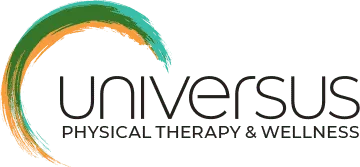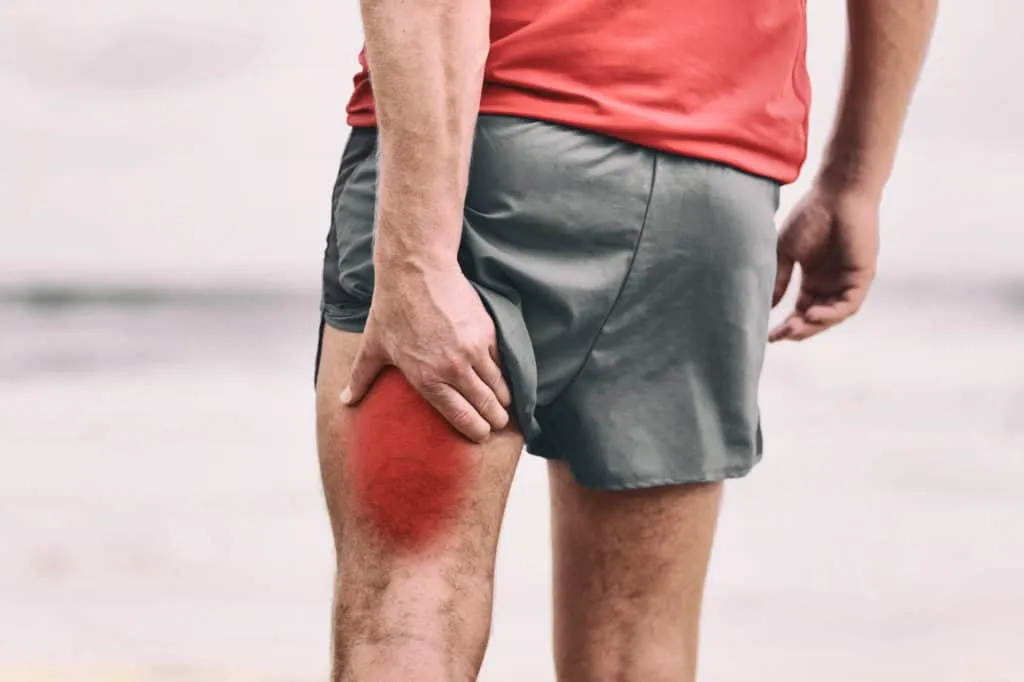Muscle strains are among the most common injuries we see at Universus PT. The pain can range anywhere from mild to intense.
In most cases, mild muscle strains can be treated at home with over-the-counter medication, rest, and ice packs.
However, if there is no improvement after a few days and the pain intensifies, you need to see a physical therapist.
More Blogs From Universus PT:
Dealing with Pain: Don’t Be Afraid to Move! (Part 1)
Dealing with Pain: Fighting the Concept of Invincible to Inevitable (Part 2)
How Can I Treat My Back Pain Without Surgery?
What Is a “Pulled Muscle”?
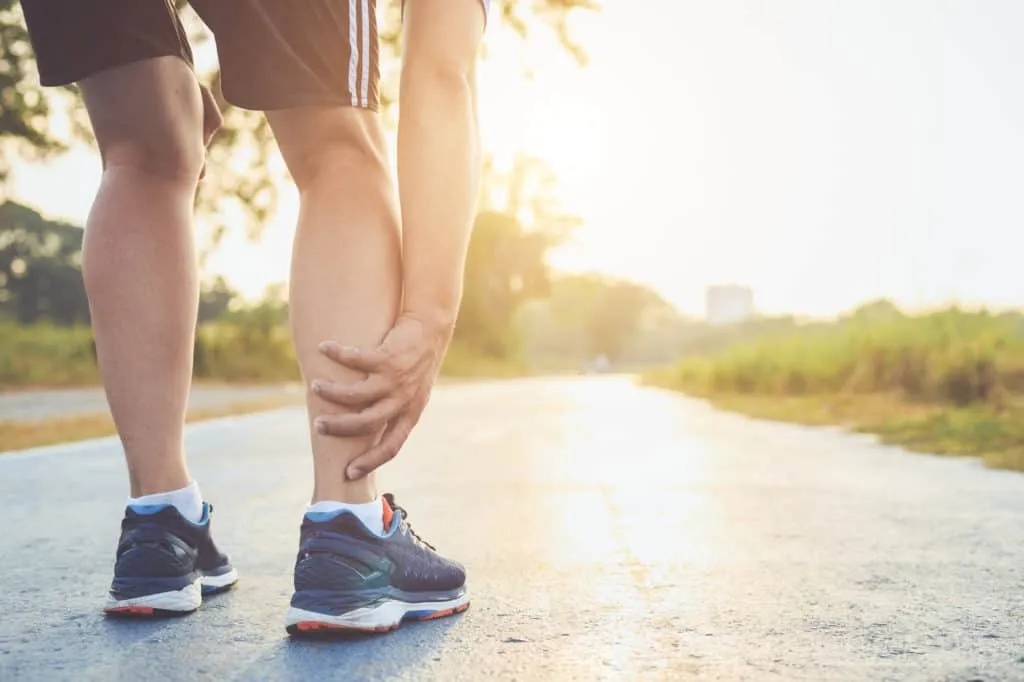
The correct term for a pulled muscle is muscle strain.
When any muscle gets injured, leading to an overstretch or tear, we call it a muscle strain.
Both muscle sprains and strains are common injuries in men and women who play sports, particularly in professional athletes.
Medical doctors and physical therapists categorize the severity of muscle strains (or pulled muscles) into three kinds:
Grade 1
A grade one muscle sprain is when there is only low-level (less than 5%) damage to the muscle fibers. Plus, your strength and mobility are only minimally affected.
You should be able to play sports again within a few weeks after a grade 1 strain.
Grade 2
We use this grade of muscle strain to describe moderate muscle strains when more extensive damage to the muscle fibers occurs. The muscle is usually torn but not entirely ruptured.
If you have a grade 2 muscle strain, the strength and mobility in the muscle will be majorly reduced. It could be up to three months before you’re back to full fitness after a grade 2 strain.
Grade 3
A grade 3 strain describes the complete rupture of the tendons or muscles. There will be considerable pain and swelling around the affected area. Sometimes, you may require surgery to fix this type of injury.
With grade 1 strains, most people find relief from their symptoms with treatment at home – combining rest with ice and a short course of anti-inflammatory medication.
But in more moderate to severe cases, you will need to consult a physical therapist to help fix the symptoms and prevent future injury.
What Is The Difference Between A Strained And A Pulled Muscle?
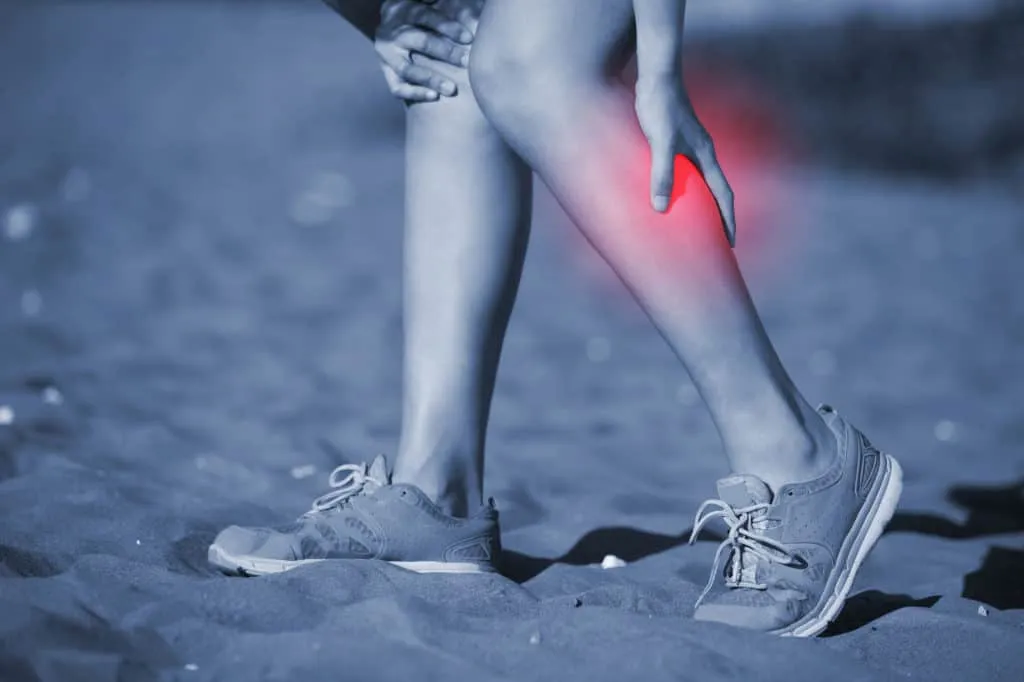
Nothing. Basically, both the terms pulled and strained muscle mean the same thing.
Likewise, muscle tears and strained muscles are similar.
The symptoms and treatment are the same, dependent on the severity.
What Is The Difference Between Muscle strains And A Hernia?
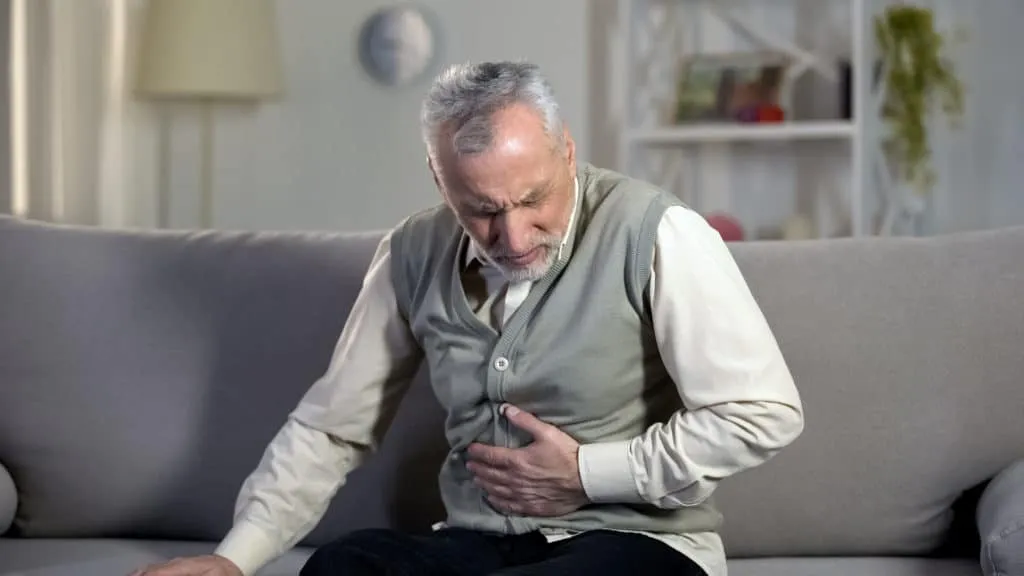
While both occur because of “strain” and overuse, muscle strains and hernias differ.
A muscle strain happens when any of the fibers in the muscle tear.
In the case of a hernia, any of your body’s internal organs can protrude out of the connective tissue or muscle that usually holds it in place.
While mild muscle strains can improve on their own, hernias do not improve on their own and, in most cases, require surgery to fix.
When To Seek Treatment
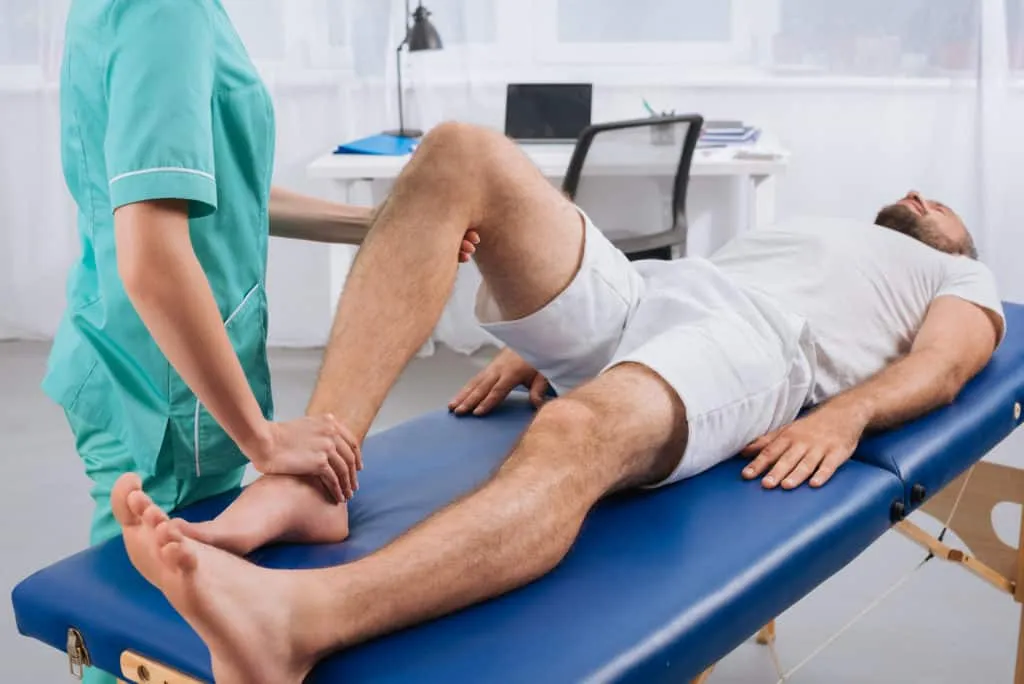
There are many other injuries and medical conditions that can present with the same symptoms as a muscle strain, including:
That’s why it’s important to get a proper diagnosis from a physical therapist.
Also, if you feel intense and sudden pain in one of your muscles during sport or any other activity, we recommend you consult with an MD or physical therapist right away to rule out a serious injury that requires medical intervention.
Who Is At Risk Of Muscle Strains?

Almost everyone is at risk of muscle strain. Still, sportsmen, women, pro athletes, and people who lead active lifestyles are more susceptible.
But even if you’re not into sports, you can still strain your muscles through over-exertion.
What Is The Impact Of Muscle Strain On The Body?
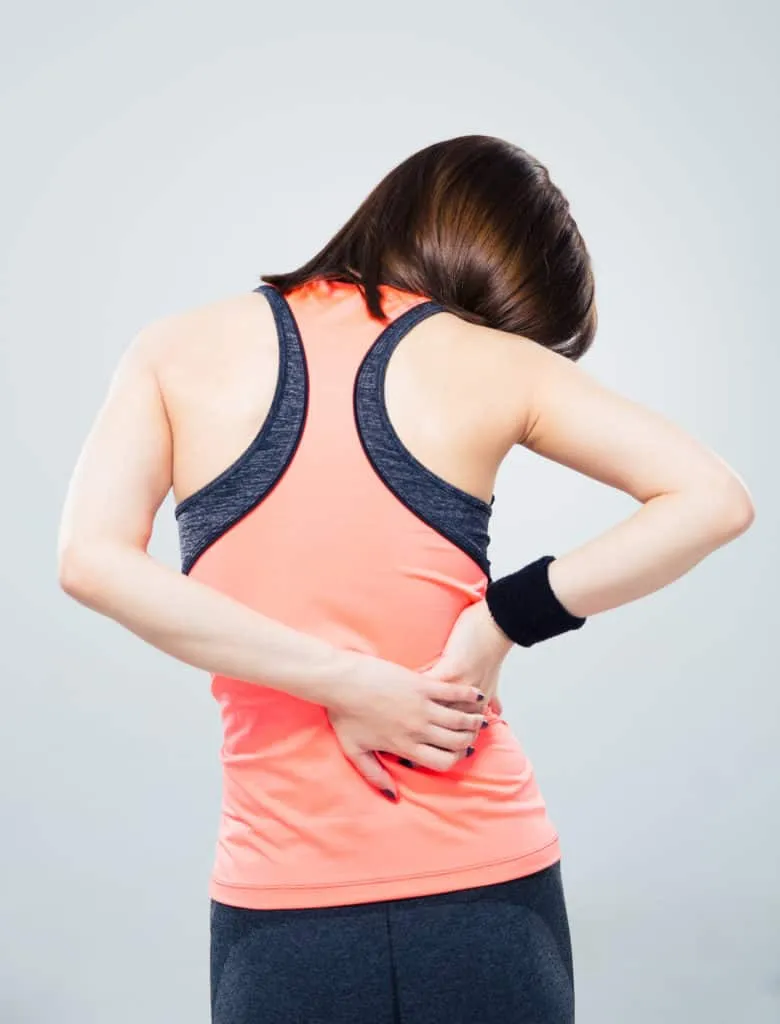
When a muscle stretches excessively or tears, it causes muscle strain.
Apart from causing pain, muscle strains can also lead to bruising and weakness.
Why?
Muscles are made up of small fibers that entwine together.
They allow movement when we stretch these fibers and press them together by squeezing a muscle.
But in the case of overuse and muscle strains, the muscle fibers stretch beyond a limit and rupture or tear.
This occurs because although muscle fibers are flexible and stretchable, applying too much pressure or a sudden jerk can cause them to tear or snap.
So, muscular strains occur when these fibers are “stretched beyond their limit”, which is different for everyone.
Muscle strains can occur anywhere in the body, but the most affected areas are:
What Are The Symptoms Of A Muscle Strain?
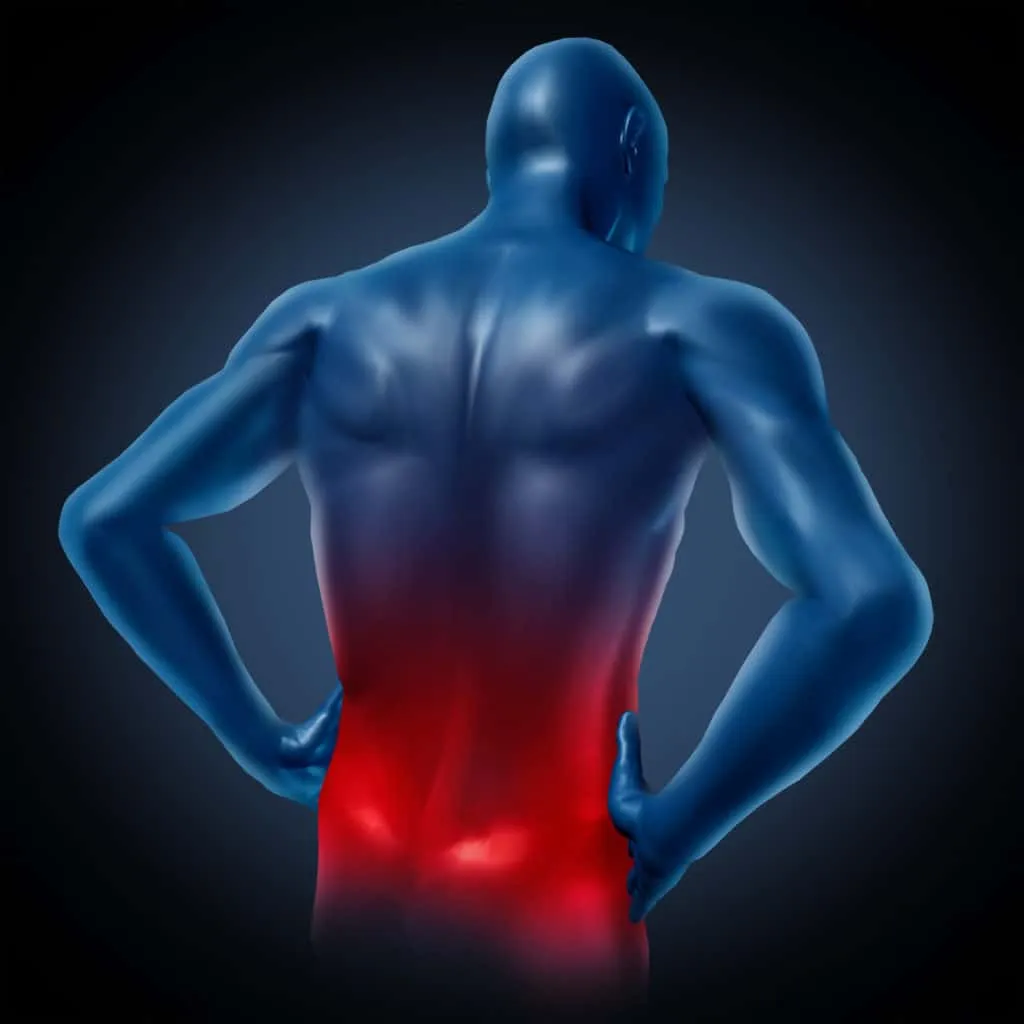
We recommend that you avoid diagnosing a muscle strain yourself at home.
Instead, visit a physical therapist for a full evaluation and diagnosis.
But the most common symptoms of a muscle strain include the following:
What Causes Muscle Strains?

There are various causes of muscle strain, such as:
Repetitive Movements
Being involved in an activity or profession where a repetitive movement of the same muscle leads to overuse.
No Warmup or Stretches
Before beginning any exercise routine, it is important to warm up first.
Similarly, stretching the muscles is necessary to relax them after completing your routine or after playing sports.
Not Being Flexible
If you lack flexibility or are excessively overweight, you can have tighter muscle fibers that lead to inflexibility.
This tightness places you at a higher risk of straining your muscles.
Do I Need Medication To Treat A Muscle Strain?
In situations where your pain is intense, your doctor may recommend taking NSAIDs like ibuprofen or aspirin.
However, you should only take NSAIDs as per the prescribed dosage.
They shouldn’t be taken for more than a couple of days because they have many negative side effects with extended use.
While other medications like muscle relaxants are available in most cases, it is unlikely you will need them.
Plus, we always recommend you try physical therapy and fix the problem naturally before popping pills.
How To Treat A Muscle Strain Without Medication

Mild Muscle Strains
Mild muscles strains are treatable at home and will respond to the following:
Take a break: Get sufficient rest and stop strenuous activity that might aggravate the muscle.
Use a cold compress: Use an ice pack every 2 hours or so for 15-20 minutes on the injury. After a day or two, when it is better, the process can be done every 4 hours or so. Never use ice directly on the skin; wrap it in a towel or cloth when applying it to the affected muscle.
Raise the injured muscle: Whenever possible, raise the injured muscle and keep it in an elevated position.
Moderate to Severe Muscle Strains
If you suffer from chronic and frequent muscle strains or have one that just won’t go away, get in touch with a physical therapist.
We can help treat the issue and help prevent future reoccurrences of the injury.
We do this by identifying the root cause and the underlying conditions that create the ideal environment for muscle strains inside your body.
We then work with you to fix the issues with customized exercises and manual hands-on therapy.
How Long Does A Strain Take To Improve?
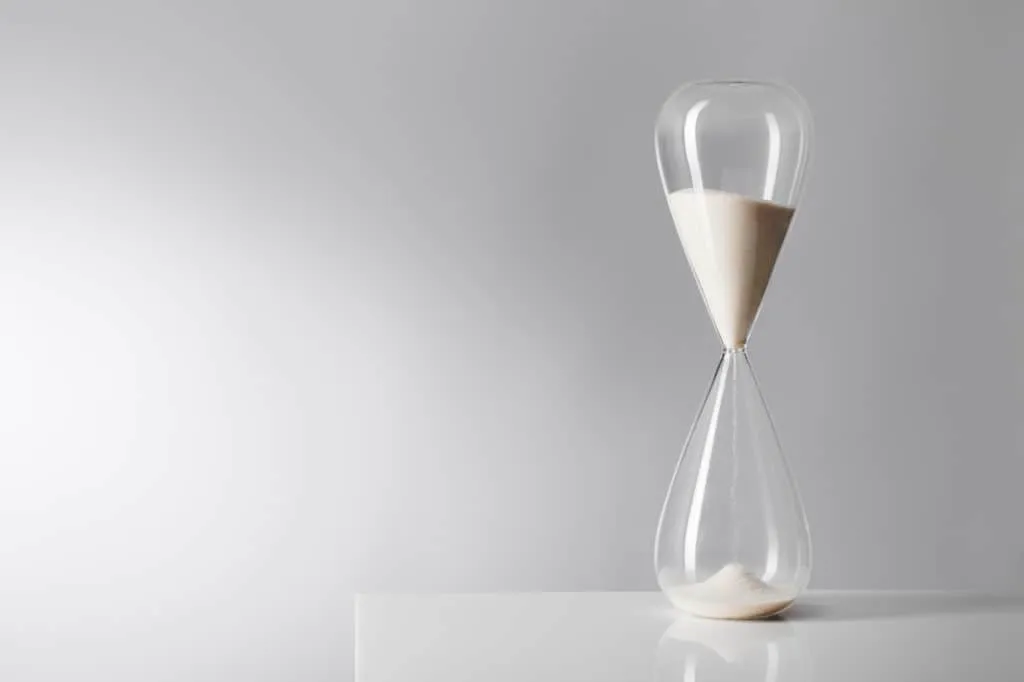
The timescale to treat a muscle strain depends on the severity of the strain and how long you’ve had it.
In mild cases and with the help of physical therapy, it should resolve in a couple of weeks. Moderate to severe cases may take a little longer.
However, regardless of the severity of the initial injury, you should always discuss it with your physical therapist before returning to sports and physical activity to prevent reoccurrence.
If you undertake strenuous activities like lifting weights or playing sports when the muscle is not completely healed, there is a great risk of re-injury and straining the muscle even worse than the first time.
How To Prevent Muscle Strains
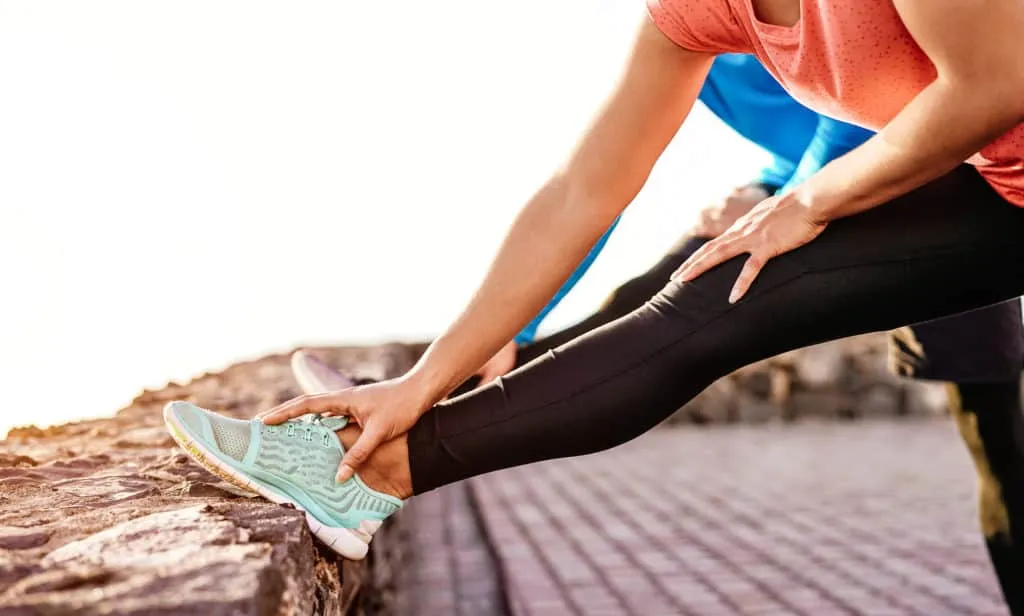
While there is nothing specific, you can do to prevent muscular strains.
There are things you can do to avoid them when you’re planning strenuous activities.
These include warmups and cooling down before and after any workout or sports activity.
You can also include regular stretching movements to improve the flexibility of your muscles so that there is less chance of them stretching past their limit.
The more you stretch and condition your muscles, the better your flexibility will be, and the less likely you will experience muscle strain.
However, you should work up gradually. Do not go gung ho right away. Otherwise, you could inadvertently give yourself muscle strain.
We Can Help You
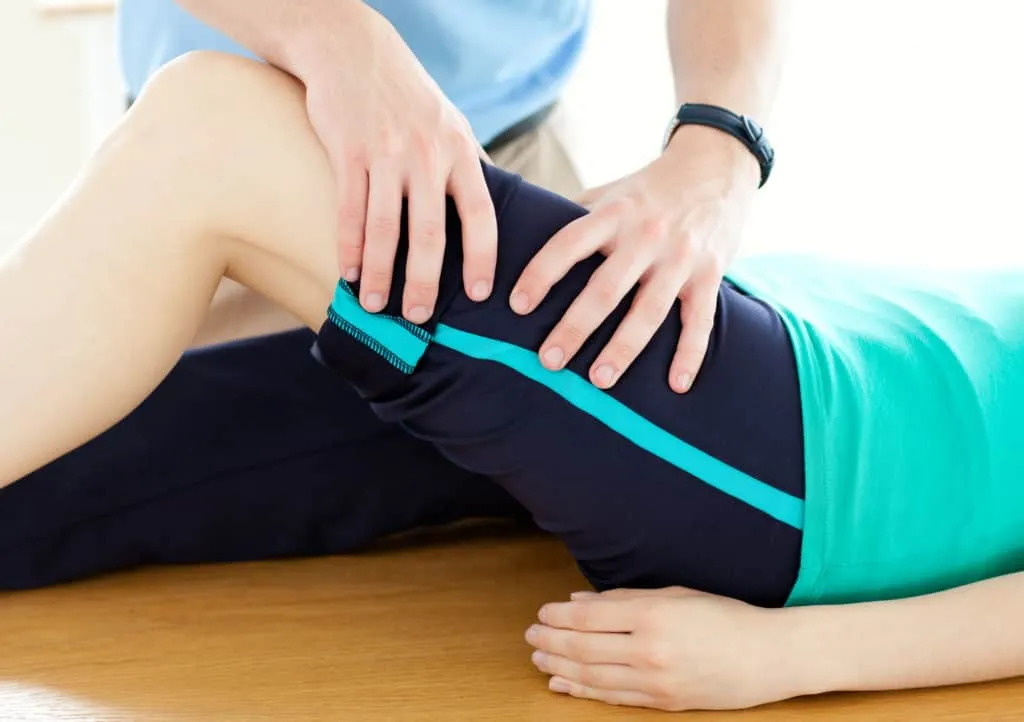
Here at Universus PT we’d be delighted to help you in your recovery.
You can book a Free Discovery Visit with us today!
In this session you’ll leave knowing exactly what is wrong and how we can treat you in future sessions.
Our team of specialist Physical Therapists see muscle injuries all the time and we’re just waiting to help you.
